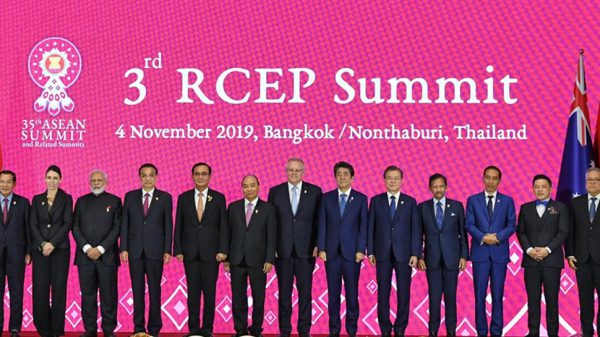Loke: JB-Singapore RTS will be LRT-based system
The approved Rapid Transit System (RTS) project linking Johor Baru and Singapore will utilise the light rail transit (LRT) form, a choice which Transport Minister Anthony Loke said was made following a review of the proposed project. “We have proposed this to Singapore and are still discussing the matter, but we have so far received a positive response. We are not only looking at construction cost, but also operations and passenger fare (among others)… We found that the LRT system is sufficient for the rail project, with only two stations, namely, Bukit Chagar on Johor’s side and Woodlands in Singapore,” he said. Dr Mahathir recently said that Malaysia will proceed with the delayed project at a new reduced cost of RM3.16 billion, following a review of the proposal with Singapore. (NST Online)
Adly: No need to lower price threshold for foreign property purchases in Melaka
There is no need for the state government to reduce the selling price threshold for foreign purchases of condominiums and apartments in Melaka from RM500,000 per unit to RM400,000 per unit, said Melaka Chief Minister Adly Zahari. He said the property threshold is among the lowest in the country and the state government has taken into consideration various aspects to maintain the selling price threshold. He further said the state government also had no plans to reduce the percentage of levy imposed on the purchases of Bumiputera quota properties in the state, which now stands at 15%. (Malay Mail)
Carpooling: Malaysia is worst in the world, survey finds
Most Malaysians who drive to work in Kuala Lumpur commute by themselves, a survey has found. The survey by the Centre for Governance and Political Studies (Cent-GPS) found that 87.3% of Malaysians in the Klang Valley are alone in their vehicles, one of the highest single driver commuter rates in the world. Around 11.6% travel with one passenger on board whilst only 0.9% travel with two other passengers on board. E-hailing drivers and their passengers were excluded from the survey. The sample respondents were drivers who were driving towards the Central Business District (CBD) on a highway that was tolled. The survey found that many preferred to drive alone because of comfort, and without having to interact with a colleague passenger. Other reasons given by these drivers was that public transport still remained difficult, similar costs of parking, and tardy colleagues making them late for work. The biggest correlation with high levels of single driver commuters is the cost of fuel and toll. “Frankly, the fairly affordable cost of fuel and toll in Malaysia is not a big enough incentive to urge people to seek a carpooling or public transportation option.” (The Star Online)

Traffic jams are a daily occurrence in Kuala Lumpur (Photo from Hype.MY)
Study on Carey Island to complete in 1Q21
The feasibility study for the development of an integrated maritime city on Carey Island, Selangor, is expected to be completed in the first quarter of 2021 (1Q21). Port Klang Authority (PKA) GM Capt K Subramaniam said the study, which will guide the government in approving the development of a third port in Klang, has commenced in August and will take 18 months to complete. The feasibility study was conducted to advise the government on the outcome of building another port in Klang. The study on the development of the third port includes economic impact, engineering, marine and environment. The study, which will detail out the financial models and the expenses to carry out the maritime project, is expected to cost the government RM6 million. Apart from the seaport, the integrated maritime city was planned to host free trade zones, industrial parks, as well as commercial and residential buildings. (The Malaysian Reserve)
India says ‘not joining’ RCEP
India said Monday it would not join a sprawling Asian trade pact, dealing a blow to the China-backed deal at the end of a Bangkok summit held against a backdrop of global growth fears. The Regional Comprehensive Economic Partnership (RCEP) was meant to account for 30 percent of global GDP and loop in half of the world’s people. But India dug in over concerns about market access, fearing its domestic industries would be hit hard if the country was flooded by cheap Made-in-China goods. The 11th-hour pullout comes after days of late-running negotiations at the ASEAN summit, which closed Monday. India’s decision is seen as a blow to the deal, which now includes all 10 ASEAN states plus China, Japan, South Korea, Australia and New Zealand – notably excluding the United States. (NST Online)

(Source: Zee News)





